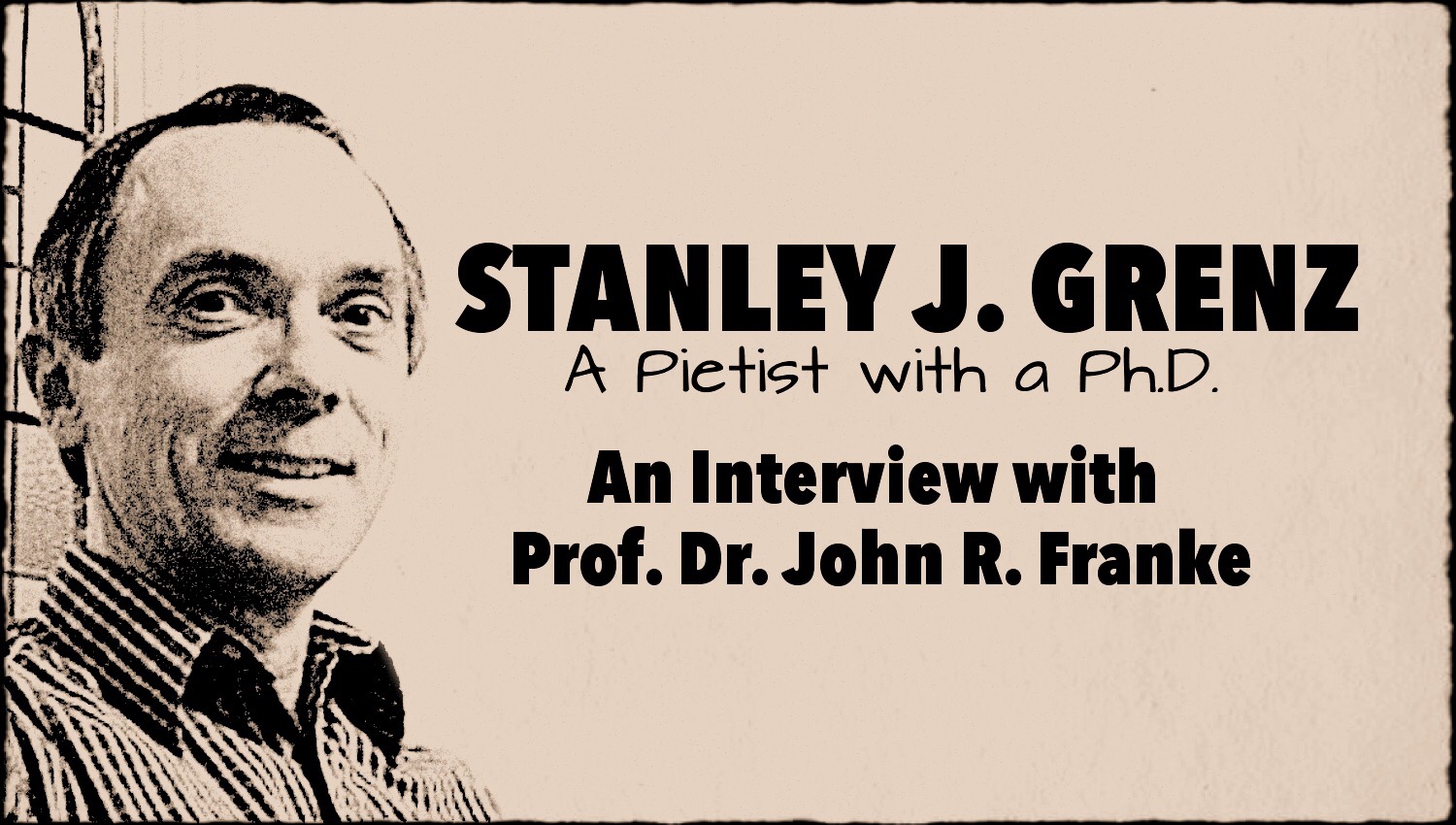Dr. Stanley J. Grenz (1950-2005) was an American Baptist theologian and a student of Wolfhart Pannenberg. Grenz wrote many excellent books, such as his systematic theology, Theology for the Community of God and others such as Beyond Foundationalism: Shaping Theology in a Postmodern Context (coauthored with Dr. John R. Franke), Women In The Church, Welcoming But Not Affirming. Grenz may be unfamiliar to some of our readers, but he is one of our favorite theologians at the PostBarthian, and anytime I see a book with Grenz's name on it, I buy it and read it right away!
Dr. Grenz died tragically young, nevertheless, he made a mark upon the world. Prof. Mike King described Grenz as a "world-class theologian" [1] and Brian McClaren described Grenz as "A Christian scholar, a theological leader and author, a gifted professor with a great legacy of grateful students, a family man and churchman, a mentor and friend, and a true Christian gentleman has walked among us." [2]
I recently had the opportunity to ask Prof. Dr. John R. Franke some questions about his work and relationship with Dr. Stanley Grenz, and I am pleased to share this interview.
PostBarthian: Hi John. May I ask you some questions about your friendship with Stan Grenz? I'm a big fan of Stan Grenz, and recently acquired a book that you co-authored with him Beyond Foundationalism. I'm mostly curious what he was like, and how well you knew him.
John R. Franke: Thanks for your note, Wyatt. I was very close to Stan. He was a good friend as well as a mentor. He was a wonderful person who lived his faith. We were friends from 1995-2005 and I spent a year living in Vancouver in the 1998-99 academic year to write the book. Simply put, Stan was one of the best people I've ever known. I miss him and think of him often. Hope this is helpful to you and hope you enjoy Beyond Foundationalism.
PostBarthian: I’m reading the book now, and I enjoy it very much. It's well written. Stan's books are prophetic in a sense, because he addresses issues long before others were aware of them. It must have been a privilege to work with him, I've benefited from his work. It looks like Stan was about 15 years older than you? Did you work with Stan as a peer, or was he a mentor to you?
John R. Franke: It was a great privilege. On the peer/mentor thing—it was a bit of both. He was twelve years older. Maybe best described as senior scholar/junior scholar situation. He was definitely a mentor, but I was also well established in my career by that point. Most importantly, he became a very close friend.
PostBarthian: Grenz studied under Wolfhart Pannenberg, how much of Grenz theology or thought followed Pannenberg's work? Thank you again for sharing. I'm very grateful
John R. Franke: Stan was significantly influenced by Pannenberg. The big difference was Stan's pietism—he referred to himself as "a pietist with a PhD" (he wrote an article by that title that you can probably find somewhere). On the other hand Pannenberg was a more rationalistically oriented theologian and once said that whatever label people ascribed to him, he was definitely NOT a pietist. That was a major difference from Stan's perspective.
PostBarthian: That's really helpful. I called Dr. Grenz a visionary or prophetic because he anticipated many questions that face evangelicals decades before they became controversies. He has a book on women in the church, being welcoming to homosexuals and Beyond Foundationalism has criticism of Inerrancy. What caused him to be able to perceive the problems so early and provide such helpful writings? And one follow up question: by piety was he referring to Schleiermacher's theology? Or something else?
John R. Franke: Stan appreciated aspects of Schleiermacher though he didn't embrace that direction. He was a pietist in the more classic sense of the term—Spener, Francke, Zinzendorf, etc. I think he was able to be helpful to so many people because he wasn't afraid to tackle the questions people were asking and he believed they should be addressed theologically and in conversation with others. These two traits led him in directions where more traditional evangelicals were unwilling to go.
PostBarthian: John, thank you so much for sharing. I think many other people would really enjoy hearing what you have to say about Stan Grenz.
To learn more about Stan Grenz, read this personal and professional biography or any of his many books.
Prof. Dr. John R. Franke is Professor Religious Studies & Missiology at ETF and an author of many great books, include Barth for Armchair Theologians and many other books.
Sources:
[^1] King, Mike. “Stan Grenz Dies.” Mike King, <king.typepad.com/mike_king/2005/03/stan_grenz_dies.html>.
[^2] McLaren, Brian. “Brian McLaren Remembers Stan Grenz.” Emergent-Us, <http://emergent-us.typepad.com/emergentus/2005/03/brian_mclaren_r.html>.




September 22nd, 2017 - 11:14
I do not know Grenz’s work. What would be a good book by him to read? Thanks
September 25th, 2017 - 12:26
Theology for the Community of God is a good choice: http://amzn.to/2wScqhK
I hope you enjoy his books!